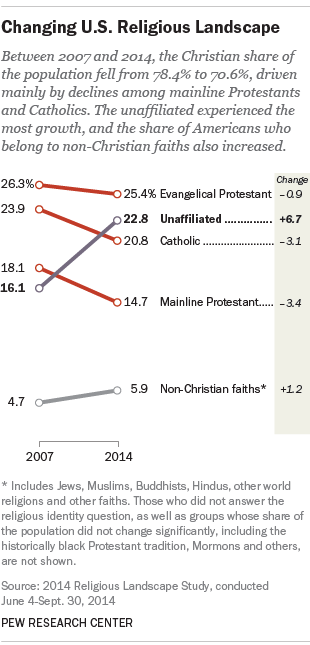Chairman Yang
if he talks about books, you better damn well listen
Interesting data, worth reading in full.
http://www.pewforum.org/2015/05/12/americas-changing-religious-landscape/

What do you guys think of the results? I'm personally surprised there have been such big changes in such a relatively short time.
http://www.pewforum.org/2015/05/12/americas-changing-religious-landscape/
To be sure, the United States remains home to more Christians than any other country in the world, and a large majority of Americans – roughly seven-in-ten – continue to identify with some branch of the Christian faith.1 But the major new survey of more than 35,000 Americans by the Pew Research Center finds that the percentage of adults (ages 18 and older) who describe themselves as Christians has dropped by nearly eight percentage points in just seven years, from 78.4% in an equally massive Pew Research survey in 2007 to 70.6% in 2014. Over the same period, the percentage of Americans who are religiously unaffiliated – describing themselves as atheist, agnostic or “nothing in particular” – has jumped more than six points, from 16.1% to 22.8%. And the share of Americans who identify with non-Christian faiths also has inched up, rising 1.2 percentage points, from 4.7% in 2007 to 5.9% in 2014. Growth has been especially great among Muslims and Hindus, albeit from a very low base.

What do you guys think of the results? I'm personally surprised there have been such big changes in such a relatively short time.

